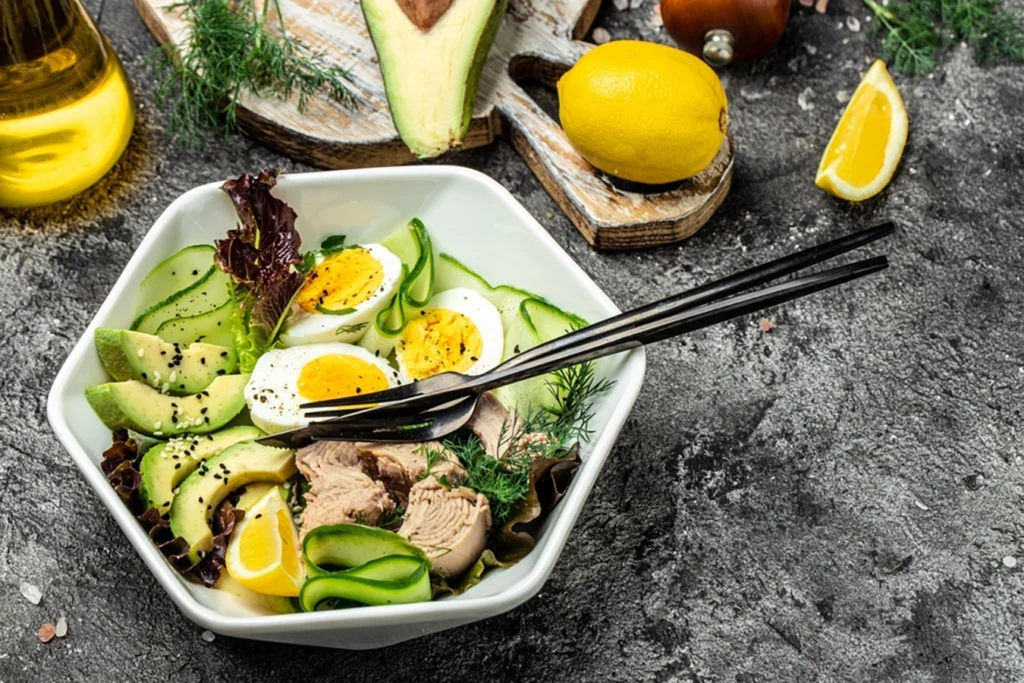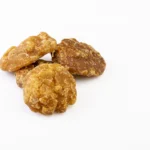Introduction
The quest for a healthier lifestyle is a global phenomenon, and the keto diet has gained significant attention, even in the diverse culinary landscape of India. But what are the nuances of the keto diet in the Indian context? This comprehensive guide aims to unravel the intricacies by examining both the advantages and drawbacks of adopting the keto diet within the vibrant tapestry of Indian traditions and cuisines.
Table of Contents
The Fundamentals of the Keto Diet
Before delving into the specifics, let’s establish the basics of the keto diet. The keto diet, short for ketogenic diet, is a high-fat, low-carbohydrate dietary approach that aims to shift the body’s metabolism from relying on carbohydrates for energy to utilizing fats. This shift induces a state called ketosis, wherein the body produces ketones as an alternative energy source. The core principle is to drastically reduce carb intake, replacing it with healthy fats and an adequate amount of protein.

Benefits of the Keto Diet in the Indian Context
Weight Loss and Management
Weight management is a universal concern, and the keto diet has gained traction as a potential solution. In India, where traditional diets can be carbohydrate-rich, the transition to a high-fat diet can lead to effective weight loss. By inducing ketosis, the body taps into fat stores, aiding in shedding excess pounds.

Improved Blood Sugar Control
India grapples with a significant diabetes burden. The keto diet’s low-carb nature can help stabilize blood sugar levels, making it a potential ally in diabetes management. However, medical supervision is crucial, as medication adjustments may be necessary.

Enhanced Mental Clarity and Focus
Amidst the hustle of modern life, mental clarity is cherished. The keto diet’s influence on brain health has intrigued many. By providing a steady supply of ketones, the brain may experience enhanced focus and mental sharpness.
Appetite Suppression and Satiety
Hunger pangs can be formidable adversaries on any dietary journey. The keto diet’s emphasis on fats and proteins can promote a feeling of fullness, reducing the likelihood of overeating and aiding in appetite control.

Potential Cardiovascular Health
Contrary to initial concerns, the keto diet might have cardiovascular benefits. In India, where heart health is paramount, some studies suggest that the diet’s impact on cholesterol levels could be favorable. However, individual responses vary, and consultation with a healthcare provider is advisable.
Drawbacks of the Keto Diet in the Indian Context
Nutritional Imbalance
India’s culinary heritage is rich in grains, legumes, and vegetables. The keto diet’s restrictive nature might lead to micronutrient deficiencies, emphasizing the need for careful meal planning and supplementation.
Adaptation Period Challenges
Keto adaptation, often accompanied by symptoms termed the “keto flu,” can be challenging. In India, where staple foods are carbohydrate-centric, transitioning to a low-carb diet can trigger discomfort, fatigue, and irritability during the adjustment phase.
Limited Food Choices
Indian cuisine is a tapestry of flavours, but the keto diet’s constraints can limit choices. Traditional dishes like rice, chapati, and certain fruits are restricted. Adhering to the diet may require creative modifications and substitutions.
Impact on Digestive Health
Fibre-rich foods play a crucial role in digestive health, and the keto diet’s limited carb intake might lead to constipation or other gastrointestinal discomforts, especially if not managed well.

Social and Cultural Considerations
Food is a cornerstone of Indian culture, and social gatherings often revolve around shared meals. Adhering to the keto diet might present challenges during festivals and family events, potentially affecting social experiences.
Making the Keto Diet Work for You in India
Adopting the keto diet in India requires a balanced approach. Consider consulting a registered dietitian or nutritionist who understands the nuances of Indian cuisine. Customizing the diet to align with cultural preferences and addressing individual health needs can enhance the diet’s effectiveness.
Conclusion
The keto diet’s journey through the mosaic of Indian culture is a tale of both promise and caution. Its potential benefits for weight loss, blood sugar control, mental clarity, and cardiovascular health must be weighed against its challenges, including nutritional balance and adaptation. Navigating the keto path in India requires mindfulness, education, and a holistic approach to well-being.
FAQs
Q1: Can I follow the keto diet without compromising my cultural and culinary preferences?
Absolutely! Embracing the keto diet doesn’t mean you have to bid farewell to your cherished cultural and culinary traditions. While some adjustments are necessary, you can still enjoy keto-friendly versions of your favorite Indian dishes. Swap out carb-heavy ingredients for low-carb alternatives, experiment with spices and flavors, and explore creative cooking techniques to retain the essence of your culinary heritage while staying true to the keto principles.
Q2: Are there keto-friendly Indian dishes that retain the essence of traditional flavors?
Definitely! The beauty of Indian cuisine lies in its versatility, and there are numerous keto-friendly adaptations that preserve the soul of traditional flavors. Consider dishes like cauliflower rice biryani, paneer tikka, tandoori chicken, and coconut-based curries. These dishes leverage Indian spices and cooking methods to create keto-friendly versions that evoke the essence of authentic Indian tastes.
Q3: What precautions should I take while transitioning to the keto diet in India?
Transitioning to the keto diet requires careful planning, especially in the Indian context. Here are some precautions to consider:
- Consult a Professional: Seek guidance from a registered dietitian or healthcare provider who understands the keto diet and its implications in the Indian cultural and dietary context.
- Gradual Transition: Ease into the diet gradually to minimize the discomfort of adaptation. Gradually reduce carb intake while increasing healthy fats and proteins.
- Stay Hydrated: Ketosis can lead to increased water loss, so stay hydrated by consuming sufficient water and electrolytes.
- Monitor Nutrient Intake: Pay attention to nutrient intake, especially vitamins and minerals. Consider supplements if needed.
- Listen to Your Body: Everyone’s response to the keto diet is unique. Monitor how your body reacts and adjust your approach accordingly.
Q4: How can I ensure sufficient micronutrient intake on the keto diet in India?
Maintaining adequate micronutrient intake on the keto diet is essential for overall health. In the Indian context, where traditional diets are rich in diverse foods, consider the following strategies:
- Diverse Vegetables: Opt for a variety of low-carb vegetables to ensure a range of nutrients.
- Include Nuts and Seeds: These nutrient-dense foods can provide essential vitamins and minerals.
- Consume Dairy: Dairy products like paneer and yogurt can contribute to your calcium and protein intake.
- Supplements: If needed, consult a healthcare professional about supplements for specific nutrients like B vitamins, magnesium, and potassium.
Q5: Is the keto diet suitable for everyone, or are there specific health considerations?
While the keto diet has its benefits, it’s not a one-size-fits-all solution. Consider the following health considerations:
- Individual Variation: People respond differently to diets. Some may thrive on keto, while others may not.
- Existing Health Conditions: Individuals with diabetes, heart conditions, or metabolic disorders should consult a healthcare provider before starting the keto diet.
- Pregnancy and Lactation: Pregnant or lactating women should avoid drastic dietary changes without medical guidance.
- Long-Term Sustainability: Evaluate whether the keto diet aligns with your long-term health and lifestyle goals.
Remember, before making any significant dietary changes, it’s crucial to consult with a healthcare professional to ensure that the diet is safe and appropriate for your individual circumstances.








1 thought on “Keto Diet in India: Unveiling 5 Benefits and Drawbacks You Need to Know”